Report Out: Rare at COP28
Advancing local leaders and local solutions on a global stage
From November 30 – December 12, 2023, Rare staff, joined by local leaders from the Coastal 500, joined national policymakers and civil society in Dubai, UAE for the UNFCCC COP28 summit. Rare’s delegation focused on encouraging political and financial support for locally-led, behavior-centered, and nature-based solutions to deliver climate adaptation and mitigation outcomes.
The chief outcome of COP28 was the landmark UAE Consensus agreement to transition away from fossil fuels, an historic (and long-overdue) accomplishment and widely considered to be the beginning of the end of the era of fossil fuels. This agreement was part of the first Global Stocktake—a report card of progress towards the goals of the Paris Agreement—which also included calls to action on nature, oceans, and food systems.
However, an agreement is only as good as its implementation. The Global Stocktake outcomes will now be used to inform the next round of NDCs, due before COP30 in 2025, and orient future national and local action on climate change.
Over the course of the conference, Rare brought a unique perspective – combining policy expertise with practical, on-the-ground experience partnering with local communities and working directly with farmers and fishers on the frontlines of climate change. Rare co-organized and spoke at more than 15 events throughout COP28 to elevate the importance of local to global action.
The Coastal 500 at the Local Climate Action Summit
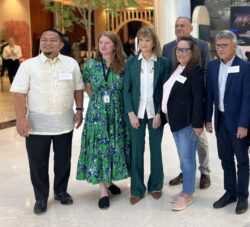
In recognition of the role local leaders play in reducing emissions, addressing climate risk, and catalyzing national efforts to move further and faster on climate progress, COP28 hosted the first-ever Local Climate Action Summit to convene mayors, governors, and subnational leaders at the UNFCCC. Rare was represented by four mayors from the Coastal 500, the global network of mayors and local government leaders committed to thriving and prosperous coastal communities—and a 2023 Earthshot Prize Finalist. Mayor Héctor Mendoza from Honduras and Mayors Alfredo Coro II, Mary Jean Te, and Alfredo Arquillano from the Philippines advocated for global leaders to engage local leaders from the frontlines of the climate crisis.
The Coastal 500 mayors highlighted the role of locally-led action for coastal resilience, with a focus on community-led, sustainable management of small-scale fisheries. The mayors met with leading ocean donors, national leaders from the Philippines and Honduras to discuss how to link and scale national and subnational action, as well as local fisher leaders from Kenya, India, Colombia and Brazil on the importance of close collaboration between leaders and communities.
Innovative Finance for Ocean-Climate Action
Small-Scale Fisheries Impact Bond
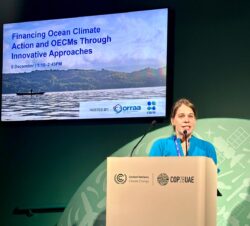
During an official side event, Rare unveiled a first-of-its-kind Small-Scale Fisheries (SSF) Impact Bond to channel private and philanthropic capital toward the revitalization of coastal communities and ecosystems. The SSF Impact Bond will finance community-led co-management of small-scale fisheries with the initial investment funding the Bond’s pilot: the establishment of five new “Managed Access with Reserves (MA+R),” areas in Southeast Sulawesi, Indonesia.
Blue Carbon
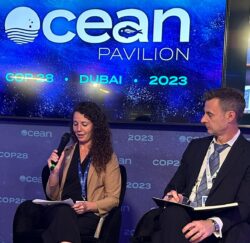
Rare also highlighted the role of innovative nature-based financing approaches such as blue carbon and parametric insurance for small scale fisheries in the Philippines. Lisa Schindler Murray, Rare’s Director of Natural Climate Solutions, elevated the Ocean Panel’s Special Report on blue carbon, called the Blue Carbon Handbook published earlier this year. Rare was announced as a winner of the Blue Carbon Accelerator Fund’s readiness grant in the Philippines, to support growing a portfolio of credible and investment-ready blue carbon projects.
Nature-based Solutions Shine
Nature-based solutions – such as protecting, sustainably managing, and restoring coastal ecosystems like mangroves, coral reefs, and seagrasses – are critical for both mitigating emissions globally and building resilience locally. There was greater recognition than ever of the need for nature and ocean-based action, with the Global Stocktake calling for the importance of protecting, conserving, restoring, and sustainably using nature. The Stocktake also recognized the alignment of the Paris Agreement and the Kunming-Montreal Global Biodiversity Framework, which includes a target of protecting 30% of lands and waters by 2030. The COP28 Joint Statement on Climate, Nature and People was issued jointly by the UNFCCC and CBD Presidencies, calling for fostering alignment of national climate and biodiversity plans.
Rare worked to advance the visibility of practical, locally-led solutions from Fish Forever project communities across the Philippines, Indonesia, and Mozambique to help people and nature adapt to a changing climate.
Major funding commitments for the ocean and coasts emerged at COP28, including $100 million by the Bezos Earth Fund for Pacific communities. The Global Mangrove Alliance partners announced over 49 governments, representing 60% of the world’s mangroves, have joined forces to protect and restore 15 million hectares of mangroves, underpinned by $4 billion of new investments by 2030.
Transforming Food Systems
Food systems finally had their moment under the UNFCCC, with outcomes reflecting the need to ensure reliable food sources, protect and restore natural ecosystems, strengthen domestic value chains, safeguard livelihoods, and shift to more sustainable production and consumption, including reducing food loss and waste and promoting sustainable aquatic blue foods. Governments and civil society called for transformational action on food systems for people, nature and climate action by 2030.
Together with 159 countries signing the Emirates Declaration on Sustainable Agriculture, Resilient Food Systems and Climate Action and committing to integrate food systems into their climate commitments, over 200 non-state actors – including Rare – signed on to the complementary Non-State Actor Call to Action on Transforming Food Systems for People, Nature and Climate, focused on the role of civil society and local action.
Individual Action: A Piece of the Puzzle
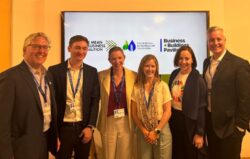
While the UNFCCC process sets the global political direction on climate change, a recent UN IPCC report highlighted the potential of individual and consumer action to meaningfully reduce emissions.
- At a COP28 side event hosted by Visa, Rare CEO Brett Jenks joined Chief Sustainability Officers from Visa, Netflix, Google, IKEA, and Ecolytiq to explore how businesses and civil society can enable the adoption of climate-friendly behaviors and consumption patterns.
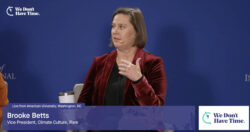
- At a COP28 adjacent event hosted by We Don’t Have Time and American University in Washington, DC, Rare VP of Campaigns Brooke Betts joined a panel discussion on the power of storytelling in amplifying awareness, cultivating empathy, and driving positive environmental action.
- Concurrent to COP28, the Washington Post “Climate Coach” column featured Rare in a piece about the power of social influence to amplify the impact of individual climate actions. The column explains how an individual’s climate action influences those around them to act—often more than anything else.
Rare joins Meta, Yale to measure International Public Opinion on Climate Change
In partnership with Data for Good at Meta and Rare’s Center for Behavior & the Environment, we recently conducted a survey investigating public climate change knowledge, attitudes, policy preferences, and behavior among Facebook users in nearly 190 countries and territories worldwide.
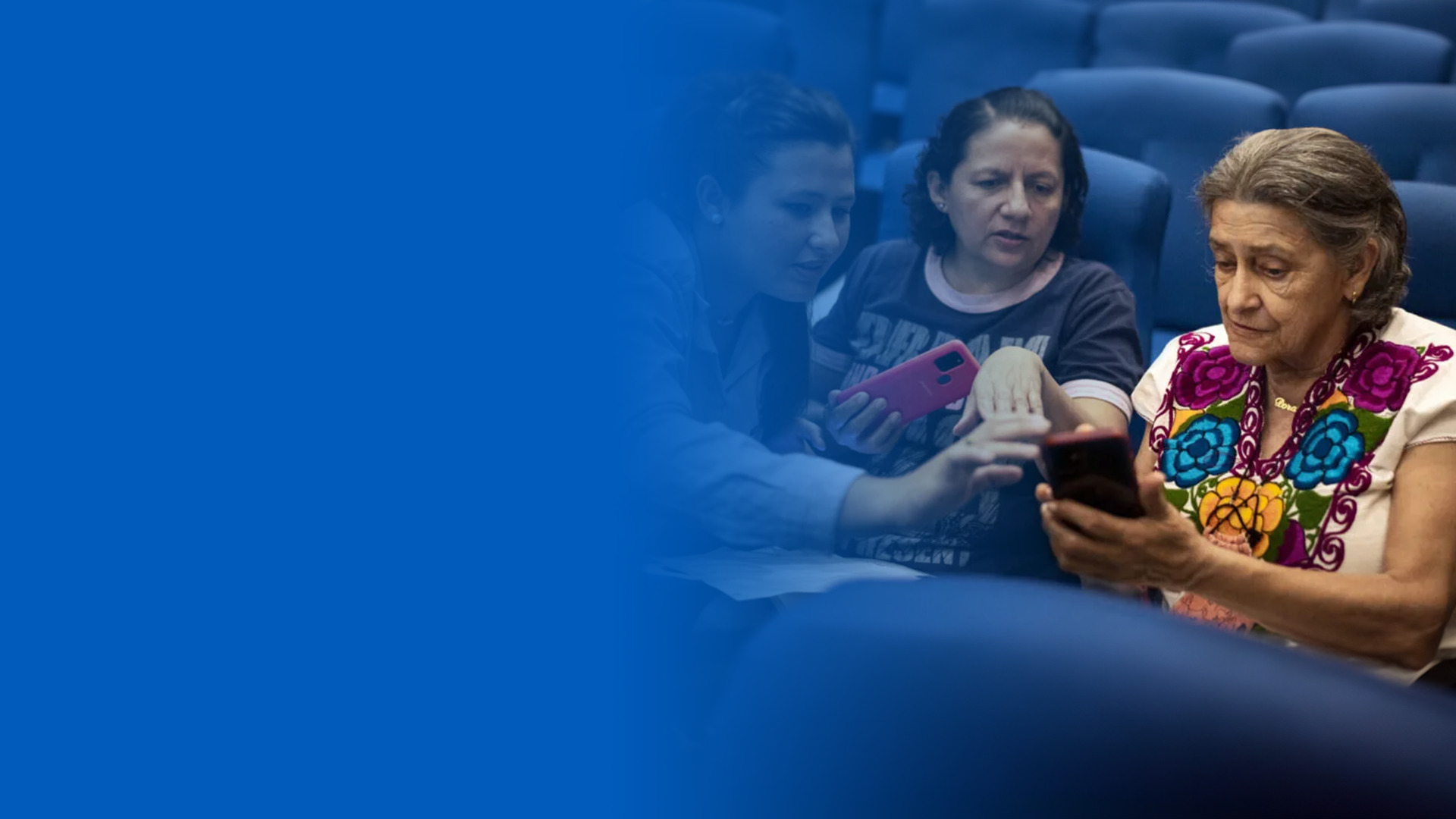
Rare on the Frontlines of Climate Change
From helping coastal communities adapt to the impacts of climate change, to helping smallholder farmers adopt regenerative practices, to fueling the normalization of the 2030 lifestyle among Americans, Rare is on the frontlines of funneling individual change toward collective action for the climate.
Learn more about Rare’s cross-cutting climate work.